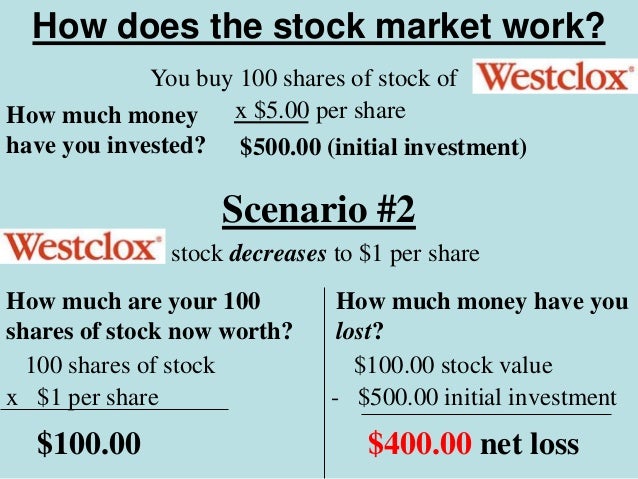If the idea of investing in the stock market frightens you, you are not alone. Individuals with really limited experience in stock investing are either terrified by horror stories of the average financier losing 50% of their portfolio valuefor example, in the 2 bear markets that have actually already taken place in this millennium or are beguiled by "hot suggestions" that bear the promise of How Does Investing Work huge benefits but seldom settle.
The reality is that buying the stock market brings danger, but when approached in a disciplined way, it is among the most efficient ways to develop one's net worth. While the worth of one's house usually represents the majority of the net worth of the typical specific, the majority of the wealthy and really rich typically have most of their wealth purchased stocks.
Secret Takeaways Stocks, or shares of a business, represent ownership equity in the firm, which give investors voting rights as well as a residual claim on business incomes in the kind of capital gains and dividends. Stock markets are where private and institutional investors come together to purchase and sell shares in a public venue.

For example, an individual or entity that owns 100,000 shares of a business with one million outstanding shares would have a 10% ownership stake in it. The majority of business have outstanding shares that run into the millions or billions. Common and Preferred Stock While there are two primary kinds of stockcommon and preferredthe term "equities" is synonymous with common shares, as their combined market value and trading volumes are numerous magnitudes larger than that of preferred shares.
Preferred shares are so called due to the fact that they have choice over the common shares in a company to receive dividends in addition to properties in the event of a liquidation. Common stock can be additional categorized in regards to their ballot rights. While the standard premise of common shares is that they should have equivalent voting rightsone vote per share heldsome business have dual or several classes of stock with various ballot rights connected to each class.